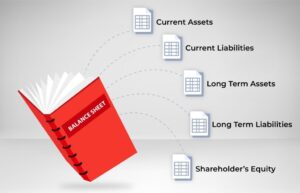![]()
TaxAudit for ContentCreators
During a TaxAudit report for ContentCreators, several types of documentation are typically required to substantiate their income, expenses, and compliance with tax regulations.
1. Income Documentation:
Content creators are usually asked to provide evidence of their earnings, such as bank statements, PayPal records, and invoices from platforms or sponsors. This documentation helps verify the sources and accuracy of their reported income.
2. Expense Receipts:
Any expenses claimed as deductions need proper documentation, including receipts, invoices, and bills. These can include costs related to equipment, software, internet connection, marketing, travel, and other business-related expenses. Proper documentation ensures that claimed deductions are legitimate and comply with tax laws.
3. Contracts and Agreements:
Content creators often have contracts or agreements with brands, sponsors, or collaborators. These documents outline the terms of partnerships, sponsored content, or affiliate arrangements. They are important for demonstrating the nature of financial relationships and collaborations, which could impact tax liability.
4. Platform Statements:
Statements from online platforms, such as YouTube, Twitch, Patreon, and others, can provide an overview of earnings received through these platforms. These statements serve as additional evidence of income and can help cross-reference the reported figures.
5. Bank Statements:
Bank statements offer a comprehensive view of financial transactions, including incoming payments and outgoing expenses. They can provide a clear picture of cash flow related to content creation activities.
6. Ad and Sponsorship Agreements:
Documentation related to advertisements and sponsorships, such as agreements and communication with advertisers, helps verify the income received from promotional activities. This information also confirms the legitimacy of revenue streams.
7. Travel Records:
If content creators claim travel expenses, documentation like flight tickets, hotel invoices, and conference registrations can demonstrate the purpose and legitimacy of these expenses.
8. Records of Equipment Purchases:
Proof of equipment purchases, like cameras, microphones, computers, and software licenses, supports claims for depreciation and other equipment-related deductions.
9. Payment Gateway Records:
For those receiving payments through platforms like PayPal, records of transactions can be used to corroborate income figures and validate financial transactions.
10. Records of Digital Asset Purchases:
If content creators purchase digital assets such as stock photos or music licenses, maintaining documentation for these transactions helps support associated deductions.
In summary, comprehensive documentation is crucial for online content creators during a tax audit. Properly maintained records substantiate income, expenses, and compliance, ensuring a smooth audit process and reducing the risk of penalties or disputes.
For further details access our website: https://vibrantfinserv.com
To visit: https://www.mca.gov.in/

